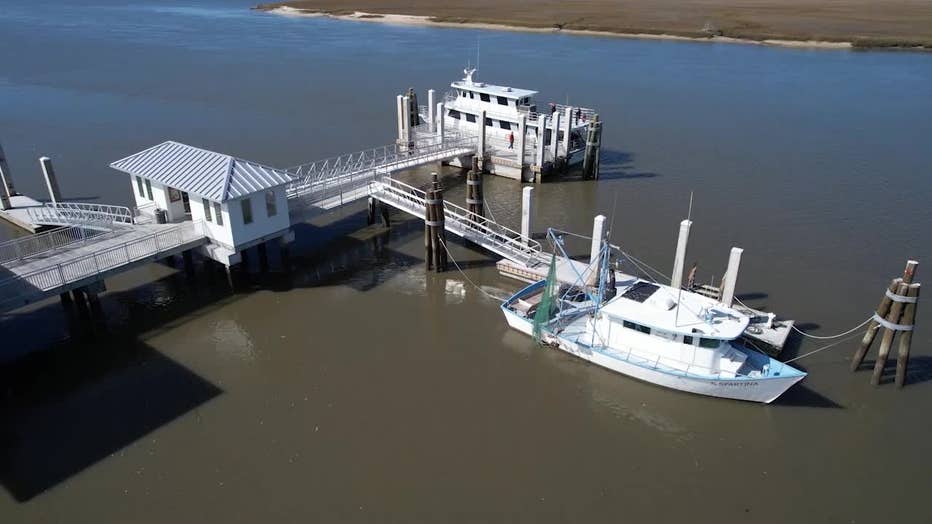Sapelo Island natives reach settlement in fight with county for services
Sapelo Island community reach settlement with county
The descendants of enslaved people on coastal Georgia's Sapelo Island have reached a settlement in their legal battle over a lack of services and land rights.
MCINTOSH COUNTY, Ga. - The descendants of enslaved people on coastal Georgia's Sapelo Island have reached a settlement in their legal battle over a lack of services and land rights.
In February, FOX 5’s Alex Whittler journeyed to Sapelo Island to explain the fight over services and the effort to ensure descendants of enslaved people own land on the island.
This month, the natives and McIntosh County have come to an agreement that the descendants say is a triumph.
There are less than 50 full-time residents on the island today. Most left for opportunity and higher education they say they can't get there.

For example, the ferry only makes three trips a day, limiting access to jobs on the mainland. Thanks to a new $2 million settlement, natives believe island life will improve.
It's been a long time coming., but JR Grovner and dozens of people from coastal Georgia's Sapelo island say they always knew change would come.
"We filed a lawsuit against the state and county four years ago, and we finally settled, but I look at that lawsuit as a win in many battles," he said.

Georgia owns 97% of the 11-mile-long, 4-mile-wide island.
Natives' enslaved ancestors once fought to own land on Sapelo. This month, they say they've taken a major step toward maintaining the little land descendants still own.
"Descendants used to own 2,000 acres out of 18,000. I'd just like us to rightfully own what's ours," Grovner said.
In July, after a 15-hour negotiation, McIntosh County and the descendants came to an agreement.
The settlement requires the county to provide road maintenance, newer EMS and fire vehicles, and reduced trash fees.

Grovner is one of few living people who were born and raised on the island. Many moved to metro Atlanta and beyond for more opportunities. He met up with FOX 5 Wednesday while visiting some of them.
He says the suit is the latest "little victory" for islanders.
"I feel like the county was overtaxing us years ago. Hopefully they can get us locked in at a certain rate," Grovner said. "If we can build something on the land and create income, we won't have to drive four hours to see family members."
The lawsuits started in 2016 to regain property, freeze taxes, and upgrade facilities such as ferry docks. Descendants received a $19 million settlement from the state case.
This newest feat, descendants say, opens the door for county conversations that could make a world of a difference.
"It's a win in a war. We still have a lot to go," Grovner said.
There's a deeper history of how Sapelo's land was consolidated in the 1930's and 50's-- a move natives say displaced the Black community. If you'd like to learn more about that, and the ways other descendants approach land retention, you can watch our original, in-depth report here.

